Learning and knowledge sharing are fundamental to the LHSS Project. We invite you to search LHSS knowledge products and resources for the latest approaches, insights, and learning in the field of integrated health systems strengthening.
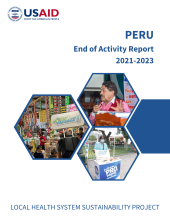
LHSS aimed to strengthen health systems in Peru, particularly in response to challenges such as the influx of Venezuelan migrants, the COVID-19 pandemic, and health disparities faced by vulnerable populations including LGBTQ individuals. This report details interventions and also provides recommendations for future strategies.
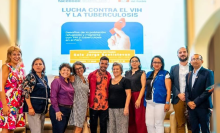
In a milestone decision, the Peruvian Congress has passed legislation that extends temporary health insurance coverage to migrants diagnosed with HIV and tuberculosis (TB).
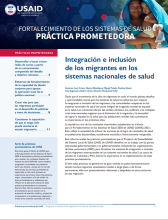
With increased migration around the world posing unique challenges and opportunities for health systems, efforts to better integrate and include migrants and host communities in national health systems are an integral part of the global health equity agenda.
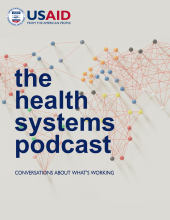
LHSS Chief of Party in Peru, Paulina Giusti learns what three organizations in Peru and Colombia are doing to improve access and link people with mental health needs to the services they require through psychosocial support networks.
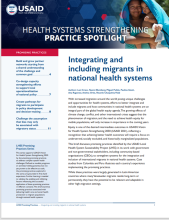
With increased migration around the world posing unique challenges and opportunities for health systems, efforts to better integrate and include migrants and host communities in national health systems are an integral part of the global health equity agenda.
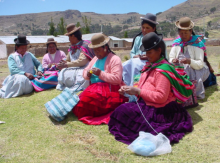
LHSS grants help nontraditional partners play a larger role in strengthening Peru’s health system.
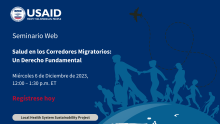
Join LHSS, Doctors without Borders, and the United Nations High Commissioner for Refugees in Honduras as we discuss the relationship between social protection in health and migration corridors in Latin America.
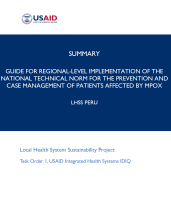
The English Summary for this report described the purpose of this guide which is to facilitate the implementation of Technical Health Standard N°191-MINSA/DGIESP-2022 for the prevention and management of patients affected by Mpox at the subnational level. This operational guide aims to ensure the effective implementation of the provisions established in the technical standard, to benefit the affected population and ensure access to appropriate services.
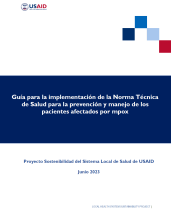
La presente guía tiene como objetivo principal facilitar la implementación de la Norma Técnica de Salud N°191-MINSA/DGIESP-2022 para la prevención y manejo de los pacientes afectados por Mpox a nivel subnacional. Esta guía operativa busca asegurar la efectiva puesta en práctica de las disposiciones establecidas en la norma técnica, con el fin de beneficiar a la población afectada y garantizar el acceso a servicios adecuados.
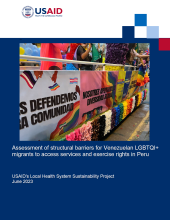
This report aims to delve deeper into comprehending the functioning of the social protection system and the interventions carried out by civil society, particularly concerning the Venezuelan LGBTQI+ migrant and refugee population in Peru. Additionally, it strives to uncover the obstacles that hinder their access to crucial services.
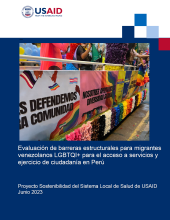
El objetivo de este reporte es profundizar en la comprensión del funcionamiento del sistema de protección público y las acciones emprendidas por la sociedad civil, en relación con la población migrante y refugiada LGBTQI+ proveniente de Venezuela en el territorio peruano.
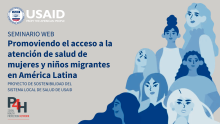
Join LHSS and the P4H Network on June 14 as we hear from local, national, and regional institutions working to advance social health protection for women and children in high migration contexts.
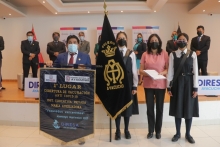
Health personnel and teachers team up to increase COVID-19 vaccination coverage among families and children through a campaign to counter myths inhibiting community uptake.
Returning funds to the Ministry of Finance at the end of the fiscal year is the last thing any Ministry of Health wants to do. In Peru, health budget officials are rolling out a strategy to stop that from happening.
LHSS conducted an assessment of the accuracy of drug scheduling tracking systems and developed recommendations to strengthen antiretroviral stockout and distribution monitoring.
